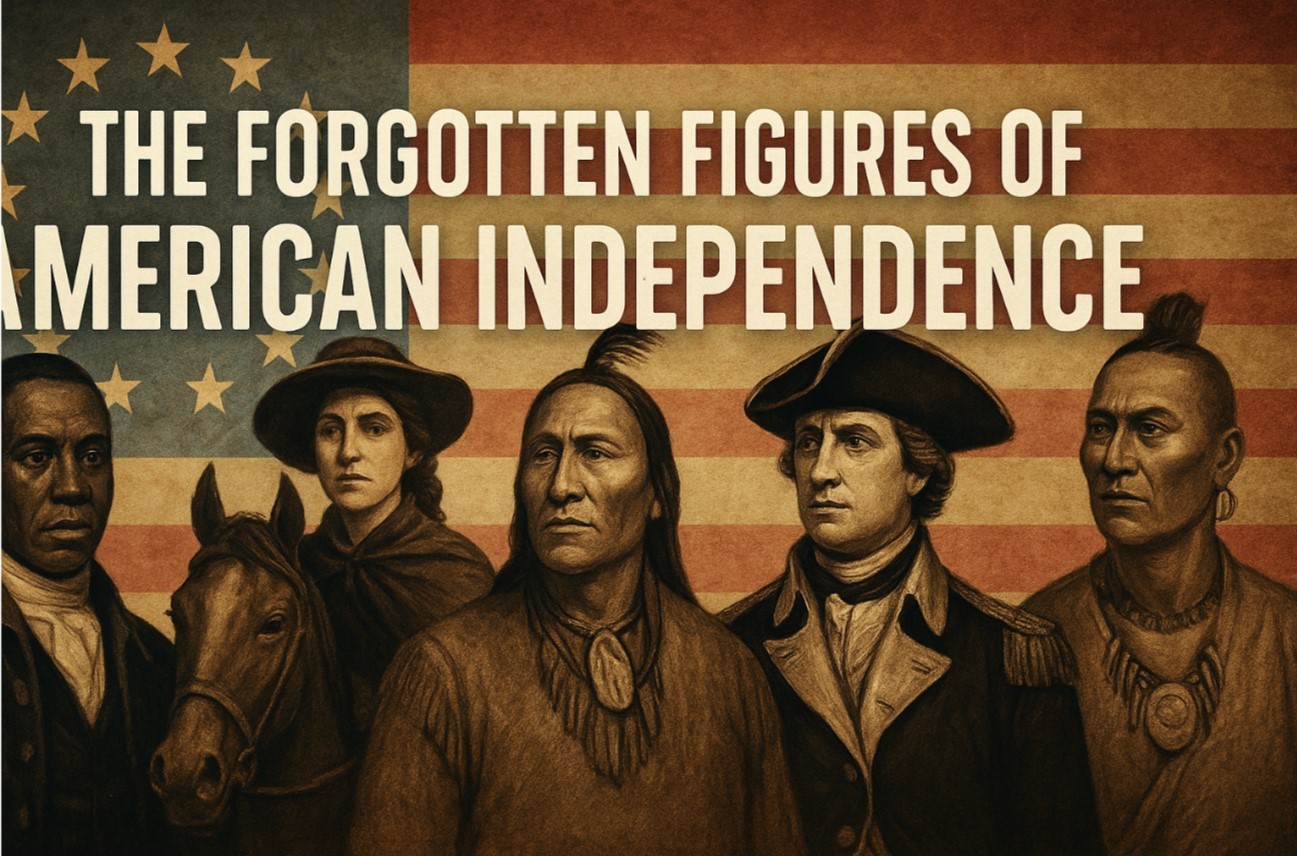List of Independence Days for Every Country in the World
| Table of Contents |
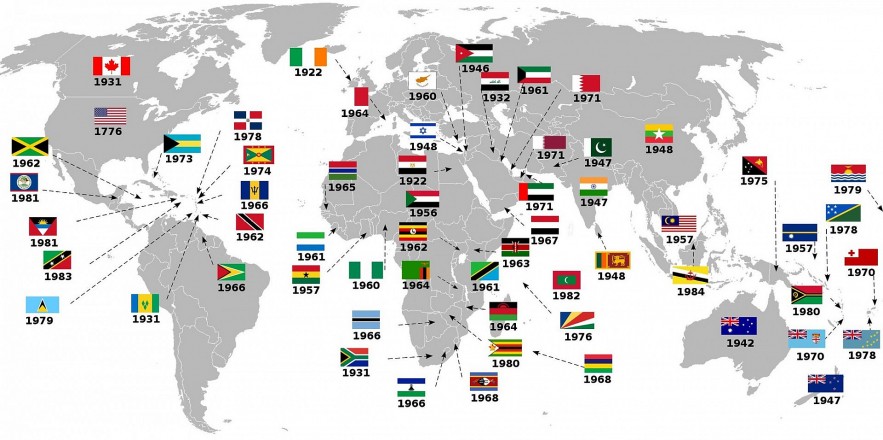 |
| Independence from Britain is celebrated somewhere in the world. Here's a map of every country that has gained independence from the UK. |
What is Independence Day?
Independence Day, often referred to as National Day, Liberation Day, Freedom Day, or King’s Day in some countries, is a holiday that commemorates a nation's independence or the end of foreign rule.
This day often marks the anniversary of a country's formal declaration of sovereignty or the signing of important documents that established the nation as an independent entity. For many countries, Independence Day symbolizes freedom, self-determination, and national pride, celebrated with festivities that include parades, fireworks, public speeches, and cultural events.
Learn more: Full List of National Days/Independence Days of Every Country: Dates and Celebrations
How Do Countries Celebrate Independence Day?
Different nations celebrate their independence in various ways, reflecting their unique history and culture. Common forms of celebration include:
Parades: Military or cultural parades displaying the nation’s history and pride are a popular part of the festivities.
Fireworks: A staple of Independence Day celebrations, fireworks symbolize the joy and freedom that the day represents.
Public Ceremonies: National leaders often give speeches, including reading declarations of independence or honoring those who fought for the nation's freedom.
Cultural Events: Concerts, exhibitions, and traditional performances reflect the country’s cultural heritage and serve to unite the citizens.
National Symbols: Many countries honor their flags, anthems, and national emblems as central pieces of their Independence Day celebrations.
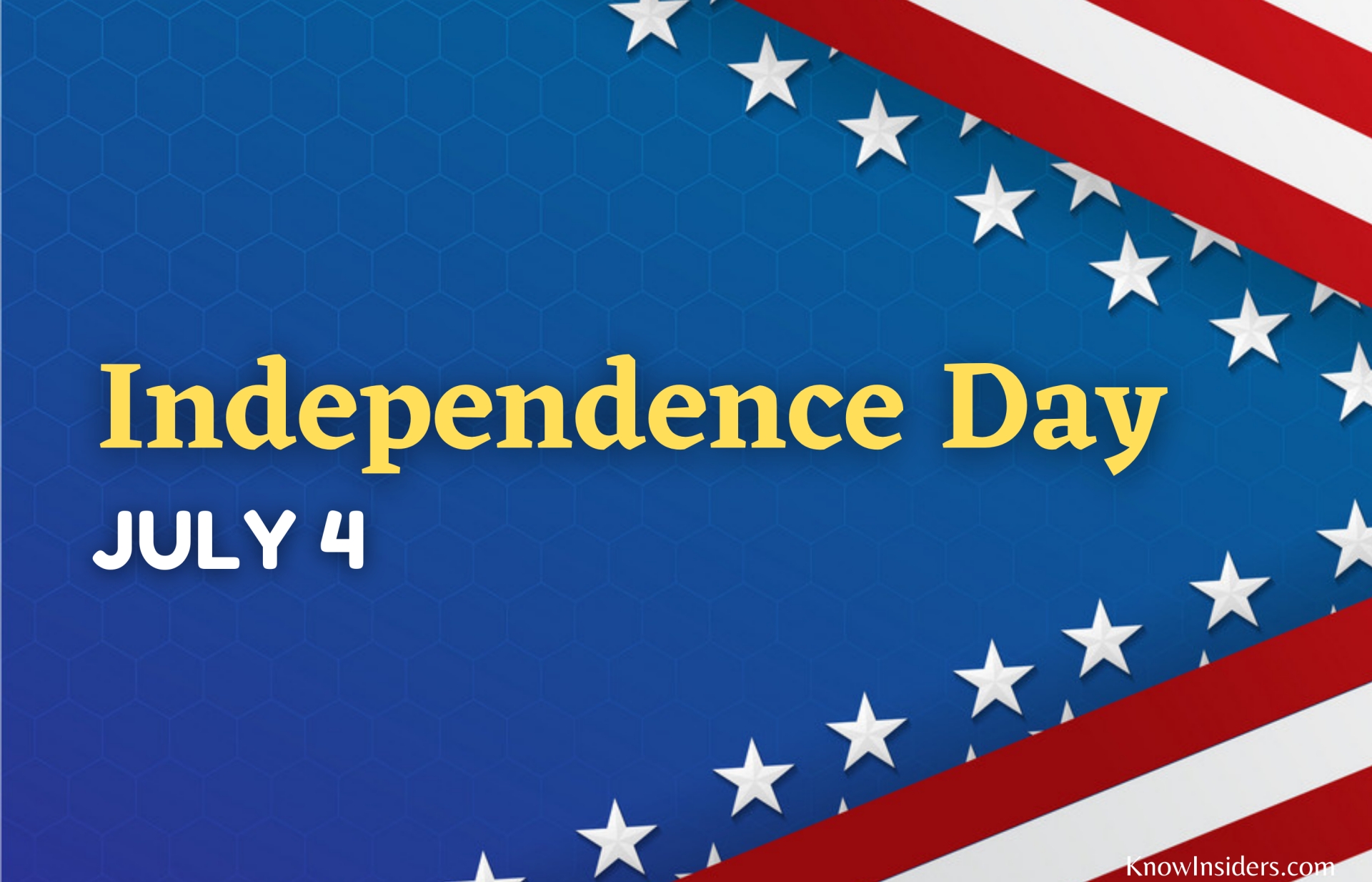 USA Independence Day (July 4): Timeline, Q & A and Facts USA Independence Day (July 4): Timeline, Q & A and Facts |
Unique Independence Days Around the World
-
United States - July 4 (Independence Day)
The United States celebrates its independence from Great Britain on July 4, 1776. Known for its grand fireworks displays, parades, and backyard barbecues, it is one of the most widely recognized national holidays globally.
-
France - July 14 (Bastille Day)
Known as Bastille Day, France's national holiday commemorates the storming of the Bastille in 1789, which marked the beginning of the French Revolution. The celebrations in Paris include a military parade on the Champs-Élysées and spectacular fireworks over the Eiffel Tower.
-
India - August 15
India celebrates its independence from British rule, achieved in 1947, with flag-hoisting ceremonies and parades. The Prime Minister delivers a speech from the Red Fort in New Delhi, and cultural programs take place across the country.
-
Mexico - September 16 (Grito de Dolores)
Mexico celebrates its independence from Spain, starting with the famous cry, "El Grito," delivered by Father Hidalgo in 1810. The Mexican president reenacts this cry every year, and cities host parades, fireworks, and traditional Mexican food festivals.
-
Norway - May 17 (Constitution Day)
Although not technically an Independence Day, Norway celebrates its constitution's signing in 1814, after centuries of foreign rule. Known for its children's parades and festive national costumes (bunads), this day is a vibrant celebration of Norwegian culture.
-
South Africa - April 27 (Freedom Day)
Freedom Day marks the first post-apartheid elections in 1994, in which citizens of all races could vote. South Africa celebrates with speeches by leaders, cultural exhibitions, and community events to honor its democratic transition.
-
Brazil - September 7
Brazil declared independence from Portugal in 1822. The day is celebrated with military parades and air shows, especially in Brasília, the nation’s capital.
-
Philippines - June 12
The Philippines celebrates its declaration of independence from Spanish rule in 1898. Festivities often include flag-raising ceremonies, historical reenactments, and cultural shows.
-
Iceland - June 17
Iceland became independent from Denmark in 1944. The day is filled with colorful parades, concerts, and ceremonies honoring the birth of Jón Sigurðsson, a key figure in the independence movement.
-
Finland - December 6
Finland celebrates independence from Russia in 1917. The day is marked with official ceremonies, candlelight processions, and the broadcast of the President's Independence Day Reception.
Unique Independence Day Celebrations
-
Qatar - December 18 (National Day)
Qatar’s National Day marks the unification of the country in 1878 under Sheikh Jassim bin Mohammed Al Thani. Celebrations include a grand parade along Doha’s Corniche and traditional camel and horse shows.
-
Ghana - March 6
Ghana became the first African country to gain independence from European colonization, in 1957. Independence Day in Ghana includes elaborate parades and cultural performances that highlight the country’s rich heritage.
-
Lebanon - November 22
Lebanon celebrates its independence from French mandate rule in 1943 with military parades in Beirut and various cultural events that showcase Lebanese art, music, and cuisine.
-
Cambodia - November 9
Cambodia's Independence Day celebrates its independence from France in 1953, with colorful parades and a fireworks display at Phnom Penh’s Independence Monument.
-
Singapore - August 9
Singapore's National Day, commemorating its separation from Malaysia in 1965, is one of the most iconic celebrations in Southeast Asia. The day features a spectacular National Day Parade, a fireworks display, and patriotic performances.
List of Independence Days for Every Country in the World
Africa
-
Nigeria – October 1, 1960
Nigeria gained independence from British rule and celebrates with parades, cultural exhibitions, and patriotic events.
-
Ghana – March 6, 1957
Ghana was the first sub-Saharan country to gain independence from Britain, marking the beginning of the end of colonial rule in Africa.
-
South Africa – April 27, 1994 (Freedom Day)
This day commemorates the first post-apartheid elections in South Africa, symbolizing the end of racial segregation.
-
Kenya – December 12, 1963
Kenya celebrates its independence from the United Kingdom with festivals and parades.
-
Algeria – July 5, 1962
After a brutal war of independence from France, Algeria celebrates this day with military parades and fireworks.
-
Morocco – November 18, 1956
Morocco celebrates its independence from France and Spain with a focus on national pride and history.
-
Tunisia – March 20, 1956
Tunisia gained independence from French colonial rule and marks the day with national pride.
-
Sudan – January 1, 1956
Sudan became independent from Anglo-Egyptian rule and marks the occasion with public celebrations.
-
Uganda – October 9, 1962
Uganda celebrates the end of British colonial rule with various cultural and national events.
-
Ethiopia – May 28, 1991
Known as Derg Downfall Day, this marks the fall of the Derg regime and the start of a new government.
-
Angola – November 11, 1975
Angola gained independence from Portugal after a prolonged war and celebrates the day with pride.
-
Zimbabwe – April 18, 1980
Zimbabwe celebrates its independence from the United Kingdom, often with large parades and state events.
-
Mozambique – June 25, 1975
Mozambique became free from Portuguese rule and celebrates with public events and political speeches.
-
Namibia – March 21, 1990
Namibia’s independence from South Africa is celebrated with speeches and national pride.
-
Botswana – September 30, 1966
Botswana marks its independence from British rule with parades and cultural performances.
-
Mali – September 22, 1960
Mali celebrates its freedom from French colonial rule with national festivities.
-
Tanzania – December 9, 1961
Known as Independence and Republic Day, Tanzania celebrates its independence from Britain.
-
Zambia – October 24, 1964
Zambia commemorates the day it gained independence from British rule with a national holiday.
-
Madagascar – June 26, 1960
Madagascar celebrates its independence from France with various cultural and historical events.
-
Côte d'Ivoire – August 7, 1960
The country celebrates its independence from France with public events and celebrations of national unity.
Asia
-
India – August 15, 1947
India gained independence from British rule and celebrates with flag hoisting, parades, and patriotic events.
-
Japan – February 11, 660 BC (National Foundation Day)
This day commemorates the founding of Japan and the accession of Emperor Jimmu, the first emperor.
-
China – October 1, 1949 (National Day)
China celebrates the founding of the People's Republic of China with large parades and fireworks.
-
Indonesia – August 17, 1945
Indonesia declared its independence from Dutch colonial rule and celebrates with parades and traditional events.
-
Vietnam – September 2, 1945
Vietnam celebrates the day Ho Chi Minh declared independence from France, marked by parades and festivities.
-
Thailand – December 5 (King's Birthday)
While Thailand was never colonized, December 5 is celebrated as the birthday of King Bhumibol, a national day of unity.
-
Philippines – June 12, 1898
This day marks the declaration of independence from Spain, celebrated with parades and patriotic songs.
-
South Korea – August 15, 1945 (Liberation Day)
South Korea celebrates liberation from Japanese occupation, marked by national events and ceremonies.
-
Pakistan – August 14, 1947
Pakistan celebrates its independence from British rule, with national events and flag-raising ceremonies.
-
Bangladesh – March 26, 1971
Bangladesh celebrates the beginning of its independence from Pakistan, leading to the formation of a new nation.
-
Afghanistan – August 19, 1919
Afghanistan celebrates its independence from British influence, marking its sovereignty with public events.
-
Sri Lanka – February 4, 1948
Sri Lanka celebrates its independence from British rule with national festivities and religious ceremonies.
-
Nepal – December 28, 2007 (Republic Day)
Nepal marks the end of its monarchy and the beginning of its republic.
-
Israel – May 14, 1948
Israel celebrates its declaration of independence with national events and public gatherings.
-
Cambodia – November 9, 1953
Cambodia celebrates independence from French rule with parades and historical commemorations.
-
Laos – October 12, 1945
Laos celebrates its independence from French rule with public ceremonies.
-
Malaysia – August 31, 1957
Malaysia celebrates its independence from British colonial rule with flag-raising ceremonies and parades.
-
Singapore – August 9, 1965
Singapore became independent from Malaysia and celebrates with large parades and public events.
-
Mongolia – December 29, 1911
Mongolia celebrates independence from the Qing Dynasty, commemorating its national identity and freedom.
-
Bhutan – December 17, 1907
Bhutan marks the coronation of its first king and the start of the Wangchuck dynasty with public celebrations.
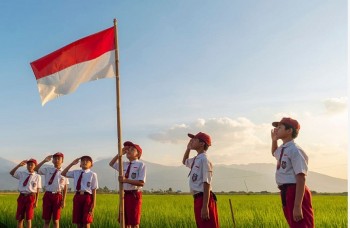 Independence Day in Indonesia/Hari Merdeka (August 17): Dates, History, Celebrations Independence Day in Indonesia/Hari Merdeka (August 17): Dates, History, Celebrations |
Europe
-
France – July 14, 1789 (Bastille Day)
Bastille Day celebrates the French Revolution and the establishment of the Republic.
-
Germany – October 3, 1990 (German Unity Day)
Germany celebrates the reunification of East and West Germany with national events and parades.
-
Italy – June 2, 1946 (Republic Day)
Italy celebrates the birth of the Italian Republic, with military parades and public events.
-
United Kingdom – None
The UK does not have an official independence day but celebrates the Queen's or King's official birthday.
-
Spain – October 12 (National Day)
Spain's National Day commemorates Christopher Columbus's arrival in the Americas.
-
Portugal – December 1, 1640
Portugal celebrates its independence from Spanish rule, marking the Restoration of Independence.
-
Russia – June 12, 1990
Russia celebrates Russia Day, marking the declaration of sovereignty from the Soviet Union.
-
Poland – November 11, 1918
Poland regained independence after World War I and celebrates with national pride and public events.
-
Greece – March 25, 1821
Greece celebrates independence from Ottoman rule with parades and cultural events.
-
Ireland – April 24, 1916 (Easter Rising)
Though Ireland's independence from the UK was formally recognized in 1921, the Easter Rising in 1916 marked the start of the Irish struggle for freedom.
-
Ukraine – August 24, 1991
Ukraine declared independence from the Soviet Union and celebrates with parades and military displays.
-
Sweden – June 6, 1523
Sweden marks the election of King Gustav Vasa and the beginning of modern Sweden.
-
Finland – December 6, 1917
Finland celebrates independence from Russia with public ceremonies and cultural events.
-
Norway – May 17, 1814
Norway celebrates its constitution and independence from Denmark with parades and traditional events.
-
Denmark – June 5, 1849 (Constitution Day)
Denmark celebrates the signing of its constitution with national pride and public events.
-
Belgium – July 21, 1831
Belgium celebrates its independence from the Netherlands with military parades and cultural events.
-
Netherlands – May 5, 1945 (Liberation Day)
The Netherlands celebrates liberation from Nazi occupation during World War II.
-
Switzerland – August 1, 1291
Switzerland celebrates the founding of the Swiss Confederation with public events and fireworks.
-
Czech Republic – October 28, 1918
The Czech Republic celebrates independence from Austria-Hungary, marking the formation of Czechoslovakia.
-
Hungary – March 15, 1848
Hungary commemorates the start of the Hungarian Revolution against the Habsburgs with national pride and celebrations.
North America
-
United States – July 4, 1776
Independence Day celebrates the Declaration of Independence from British rule with fireworks, parades, and patriotic events.
-
Canada – July 1, 1867
Known as Canada Day, this marks the confederation of Canada, celebrated with fireworks and public events.
-
Mexico – September 16, 1810
Mexico celebrates its independence from Spanish rule with parades and reenactments of the famous "Grito de Dolores."
-
Cuba – January 1, 1959
Cuba celebrates the victory of the Cuban Revolution and the fall of the Batista regime.
-
Jamaica – August 6, 1962
Jamaica celebrates its independence from British rule with parades and cultural events.
-
Haiti – January 1, 1804
Haiti became the first independent Black republic after revolting against French colonial rule.
-
Panama – November 3, 1903
Panama celebrates its independence from Colombia with national events and parades.
-
Dominican Republic – February 27, 1844
The Dominican Republic celebrates independence from Haitian rule with patriotic events.
-
El Salvador – September 15, 1821
El Salvador gained independence from Spain and celebrates with public events and festivals.
-
Guatemala – September 15, 1821
Guatemala marks its independence from Spain with patriotic displays and traditional events.
-
Belize – September 21, 1981
Belize celebrates its independence from British rule with public parades and national pride.
-
Honduras – September 15, 1821
Honduras celebrates its independence from Spanish colonial rule with traditional events.
-
Nicaragua – September 15, 1821
Nicaragua marks its independence from Spain with cultural and historical events.
-
Costa Rica – September 15, 1821
Costa Rica celebrates its independence from Spain with parades and public events.
-
Trinidad and Tobago – August 31, 1962
The country celebrates its independence from British rule with national pride and cultural events.
-
Barbados – November 30, 1966
Barbados gained independence from the United Kingdom, marking the day with public events.
-
Grenada – February 7, 1974
Grenada celebrates independence from British colonial rule with national pride and celebrations.
-
Bahamas – July 10, 1973
The Bahamas marks its independence from Britain with national festivities.
-
Antigua and Barbuda – November 1, 1981
Antigua and Barbuda celebrates its independence from the United Kingdom with parades and cultural events.
-
Saint Lucia – February 22, 1979
Saint Lucia celebrates its independence from British rule with public celebrations and national pride.
South America
-
Brazil – September 7, 1822
Brazil celebrates its independence from Portugal with military parades and public events.
-
Argentina – July 9, 1816
Argentina commemorates its independence from Spain with patriotic celebrations and parades.
-
Chile – September 18, 1810
Chile celebrates its independence from Spanish rule with traditional events and national pride.
-
Colombia – July 20, 1810
Colombia celebrates its independence from Spain with national celebrations and parades.
-
Peru – July 28, 1821
Peru commemorates its independence from Spanish rule with public events and patriotic displays.
-
Venezuela – July 5, 1811
Venezuela celebrates its independence from Spain with large parades and cultural events.
-
Bolivia – August 6, 1825
Bolivia marks its independence from Spanish rule with national celebrations and public events.
-
Ecuador – August 10, 1809
Ecuador celebrates the start of its independence struggle from Spain with national pride.
-
Paraguay – May 14, 1811
Paraguay celebrates independence from Spanish colonial rule with parades and national pride.
-
Uruguay – August 25, 1825
Uruguay celebrates its independence from Brazil with public events and national celebrations.
-
Suriname – November 25, 1975
Suriname marks its independence from Dutch rule with national pride and public events.
-
Guyana – May 26, 1966
Guyana celebrates its independence from British colonial rule with parades and traditional events.
-
Falkland Islands – April 14, 1983
The Falkland Islands celebrate liberation from Argentine occupation after the Falklands War.
-
French Guiana – No formal independence day (French overseas region)
French Guiana remains a French territory and celebrates Bastille Day with France.
-
Venezuela – July 5, 1811
Venezuela celebrates its independence from Spain with parades and public displays.
-
Peru – July 28, 1821
Peru celebrates its independence from Spanish colonial rule with patriotic events and national pride.
-
Bolivia – August 6, 1825
Bolivia marks its independence from Spanish rule with national festivities.
-
Argentina – July 9, 1816
Argentina celebrates its independence from Spain with national events and cultural pride.
-
Colombia – July 20, 1810
Colombia celebrates its independence from Spanish colonial rule with national pride and parades.
-
Chile – September 18, 1810
Chile celebrates its independence from Spain with national events and traditional celebrations.
Oceania
-
Australia – January 26, 1788 (Australia Day)
This day marks the arrival of the First Fleet in Sydney, which is celebrated with public events and national pride.
-
New Zealand – February 6, 1840 (Waitangi Day)
New Zealand celebrates the signing of the Treaty of Waitangi, establishing the relationship between Māori and the Crown.
-
Fiji – October 10, 1970
Fiji celebrates its independence from British colonial rule with parades and national events.
-
Papua New Guinea – September 16, 1975
Papua New Guinea celebrates its independence from Australia with public events and national pride.
-
Samoa – June 1, 1962
Samoa became the first Pacific nation to gain independence from New Zealand, celebrated with traditional events.
-
Tonga – June 4, 1970
Tonga celebrates its independence from British protectorate status with public ceremonies.
-
Vanuatu – July 30, 1980
Vanuatu celebrates its independence from joint British and French colonial rule with national pride.
-
Solomon Islands – July 7, 1978
The Solomon Islands celebrate independence from British rule with parades and public events.
-
Tuvalu – October 1, 1978
Tuvalu gained independence from Britain and celebrates with national events and cultural pride.
-
Kiribati – July 12, 1979
Kiribati marks its independence from British colonial rule with public events and traditional celebrations.
-
Micronesia – November 3, 1986
The Federated States of Micronesia celebrates its independence from the United States with national pride.
-
Marshall Islands – October 21, 1986
The Marshall Islands gained independence from U.S. trusteeship and celebrates with public events.
-
Palau – October 1, 1994
Palau celebrates its independence from the United States with national pride and traditional events.
-
Nauru – January 31, 1968
Nauru celebrates its independence from Australian administration with public festivities.
-
Cook Islands – August 4, 1965
The Cook Islands marks self-governance in free association with New Zealand, celebrated with traditional events.
-
Tonga – June 4, 1970
Tonga celebrates its independence from British protectorate status with cultural and national events.
-
Niue – October 19, 1974
Niue marks its self-governance in free association with New Zealand, celebrated with public events.
-
Vanuatu – July 30, 1980
Vanuatu celebrates its independence from British and French colonial rule with national pride.
-
New Caledonia – No formal independence day (French overseas territory)
New Caledonia celebrates Bastille Day in line with France.
-
Wallis and Futuna – No formal independence day (French overseas collectivity)
Wallis and Futuna remains under French governance and celebrates Bastille Day alongside France.
In Conclusion
Independence Days worldwide reflect each country's journey to freedom and national identity. National independence days are more than just public holidays; they reflect the history, struggles, and victories of nations worldwide. While some countries have long histories of independence, others are relatively new, marking recent freedom from colonial powers.
Each celebration brings a sense of unity and pride for the people of that country, serving as a reminder of their nation's journey toward self-determination.
Frequently Asked Questions (FAQ)
1. Do all countries have an Independence Day?
No, not all countries have a traditional Independence Day. Some countries, like the United Kingdom, have never been colonized, while others may celebrate national days tied to different historical events, such as the signing of constitutions or liberation from occupation.
2. Why do some countries celebrate multiple independence-related days?
In some cases, countries celebrate multiple national days due to complex histories of colonialism, revolution, or liberation. For example, a country might mark both the day it gained self-governance and the day it officially became independent.
3. Do Independence Day celebrations vary around the world?
Yes, Independence Day celebrations vary widely depending on the country and its cultural practices. While some nations hold grand parades and fireworks, others might focus on more somber or reflective events.
4. Are all Independence Days recognized as public holidays?
In most cases, Independence Days are recognized as public holidays, though the nature of the holiday can vary. Some countries may have official public holidays, while others might have ceremonial events without a full day off work.
5. What is the significance of Independence Day?
Independence Day symbolizes a nation's freedom from foreign rule and is often a key event in a country's history.
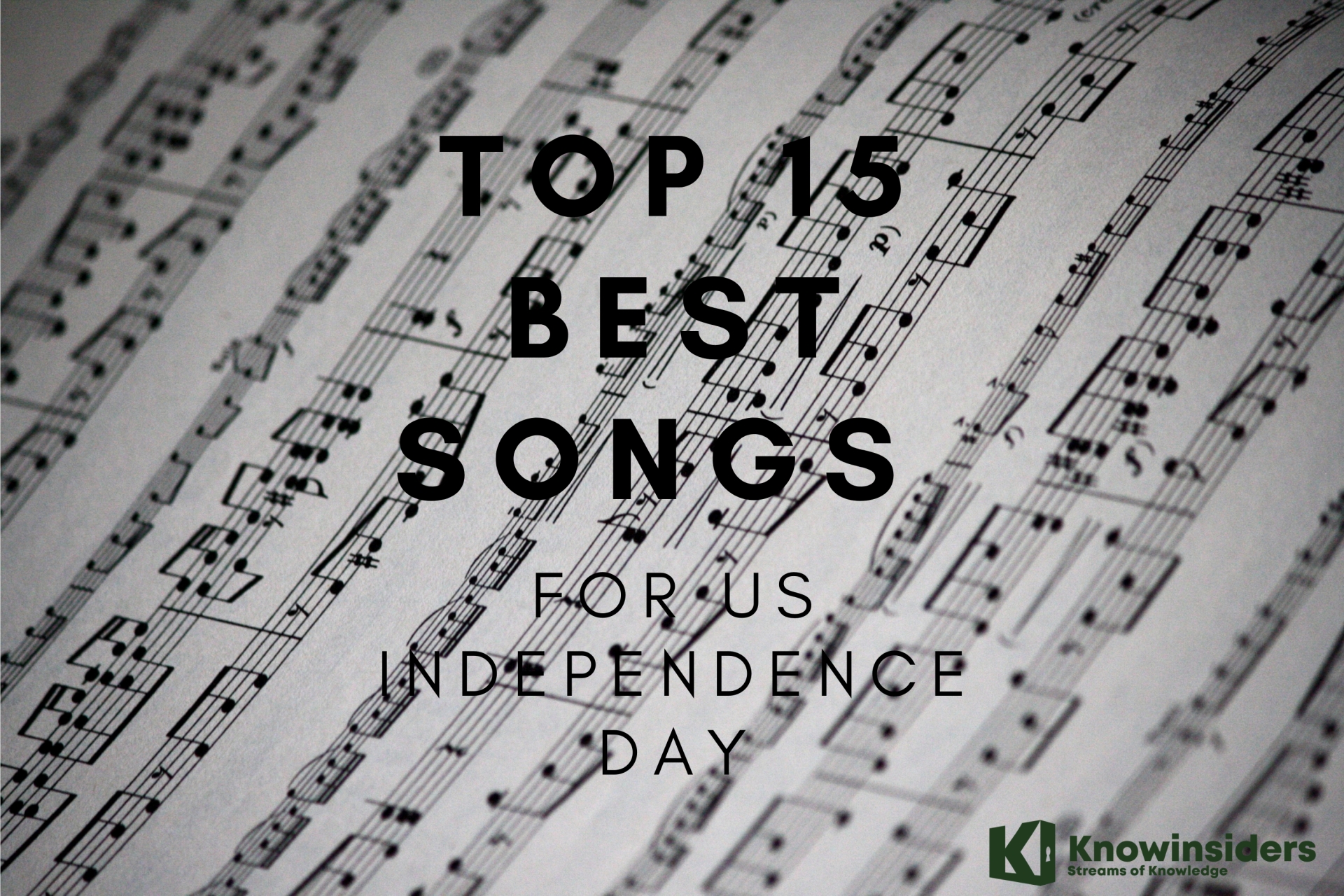 Top 15 Best Songs For US Independence Day (July 4) Top 15 Best Songs For US Independence Day (July 4) What songs to listen to on July 4? Don't forget to make a playlist of all the best ... |
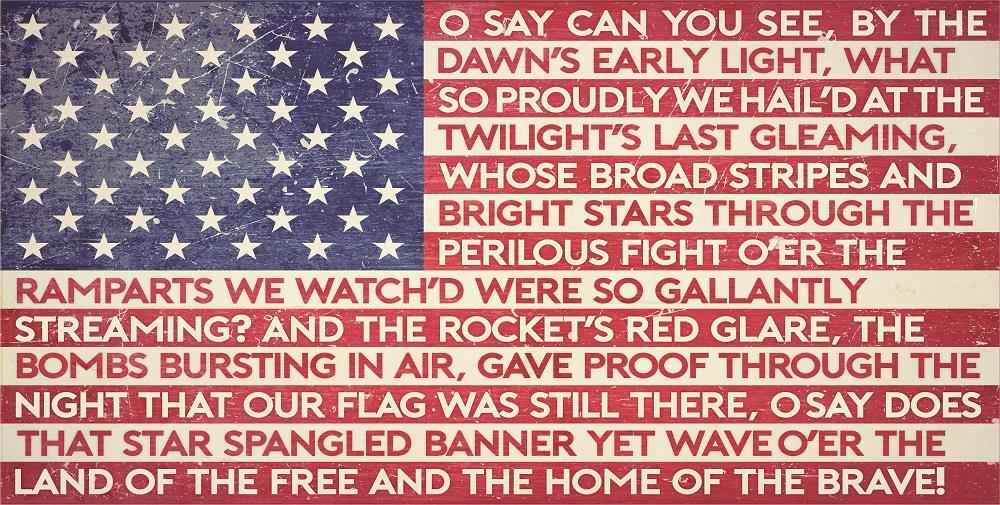 American National Anthem: Full Lyrics, History and Other Patriotic Songs American National Anthem: Full Lyrics, History and Other Patriotic Songs Check out full lyrics of "The Star-Spangled Banner" - US National Anthem and other patriotic songs. |


